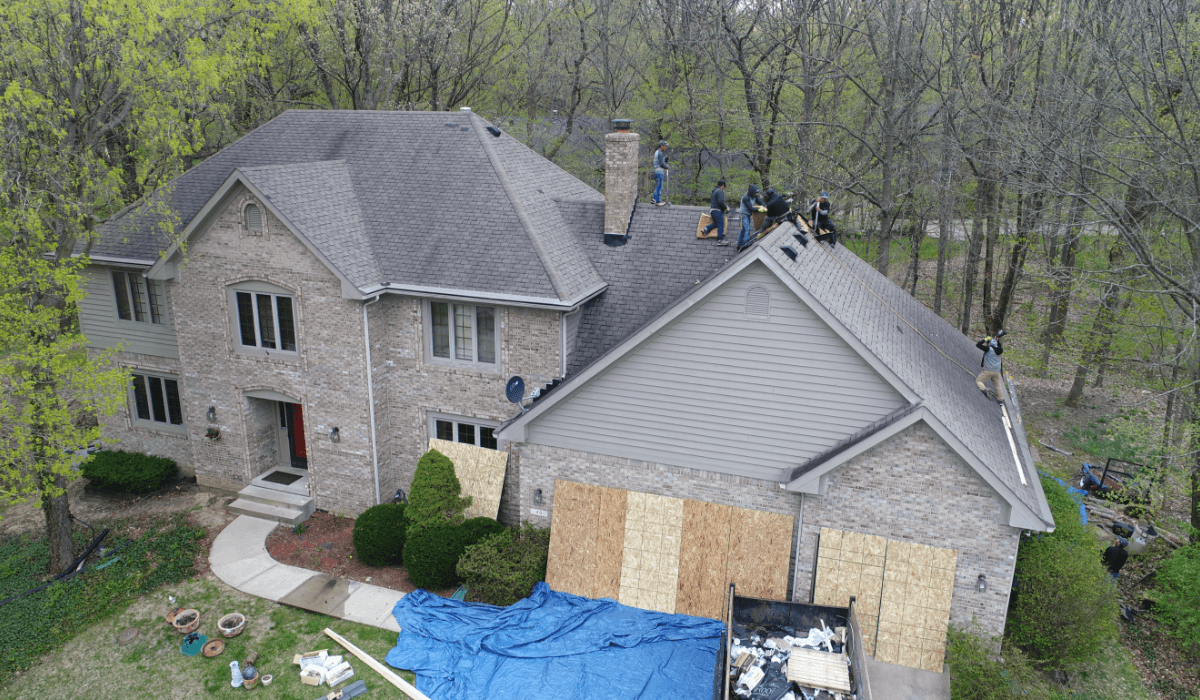The aftermath of a roofing crisis can be daunting. Whether it’s due to severe weather, unforeseen damage, or the wear and tear of time, a compromised roof demands immediate attention. Amidst the urgency of repairs, understanding the intricacies of insurance claims is crucial to ensure a smooth process and timely restoration of your roof. Let's delve into a comprehensive guide on navigating insurance claims after a roofing crisis.
Assessing the Damage:
Before initiating the insurance claim process, conduct a thorough assessment of the damage. Document the affected areas with photographs or videos, noting any visible signs of damage, leaks, or structural issues. If it's safe to do so, try to mitigate further damage without compromising your safety or interfering with the insurance assessment.
Reviewing Your Insurance Policy:
Familiarize yourself with your insurance policy's specifics regarding roof damage coverage. Policies often vary in terms of what is covered and what may be excluded. Understanding the deductible, coverage limits, and the type of damage covered (such as wind, hail, or structural issues) is crucial before proceeding with the claim.
Promptly Notifying Your Insurance Company:
Once you've assessed the damage and reviewed your policy, promptly notify your insurance company to initiate the claims process. Most policies have a specified time frame within which you need to report the damage, so don't delay in making the call. Provide accurate details and documentation to support your claim.
Gathering Evidence and Documentation:
Support your claim with detailed documentation. This includes photographs, videos, receipts for any temporary repairs you may have undertaken, and any communication (written or verbal) with contractors or inspectors regarding the damage and repairs needed. Thorough documentation strengthens your case and expedites the claim assessment.
Understanding the Claims Process:
Upon filing the claim, an insurance adjuster will likely visit your property to assess the damage. It's advisable to have your contractor present during this assessment to ensure that all damage is accurately documented. The adjuster will then estimate the repair costs and determine the coverage according to your policy.
Working with Contractors:
Select a reputable and licensed roofing contractor experienced in handling insurance claims. They can assist in documenting the damage, providing estimates, and working with the insurance company throughout the claims process. Ensure the contractor communicates directly with the adjuster to align on the necessary repairs.
Reviewing the Settlement:
Once the insurance company processes your claim, they'll provide a settlement offer outlining the coverage for repairs. Review this settlement carefully and ensure it aligns with the estimated cost of repairs provided by your contractor. If discrepancies arise, communicate with your insurance company for clarification.
Filing an Appeal if Necessary:
In cases where the settlement doesn’t adequately cover the repair costs, or if you believe certain damages were not adequately assessed, you have the right to file an appeal with your insurance company. Provide additional evidence or seek a second opinion from an independent assessor to support your appeal.
Proceeding with Repairs:
Upon agreement on the settlement and coverage, proceed with the repairs using the approved funds from your insurance claim. Ensure the contractor adheres to local building codes and regulations while conducting the repairs. Keep records of all expenses and receipts related to the repairs.
Navigating insurance claims after a roofing crisis requires meticulous attention to detail and a clear understanding of your policy and rights as a homeowner. Prompt action, thorough documentation, and effective communication with your insurance company and contractors are key to a successful claims process and the timely restoration of your roof.
Remember, in times of roofing crises, seeking guidance from experienced professionals and being proactive in managing the insurance claim process can alleviate stress and ensure your home is safeguarded against further damage. If you're unsure about any aspect of the process, consider seeking advice from a public adjuster or legal counsel to ensure a fair and just resolution.



